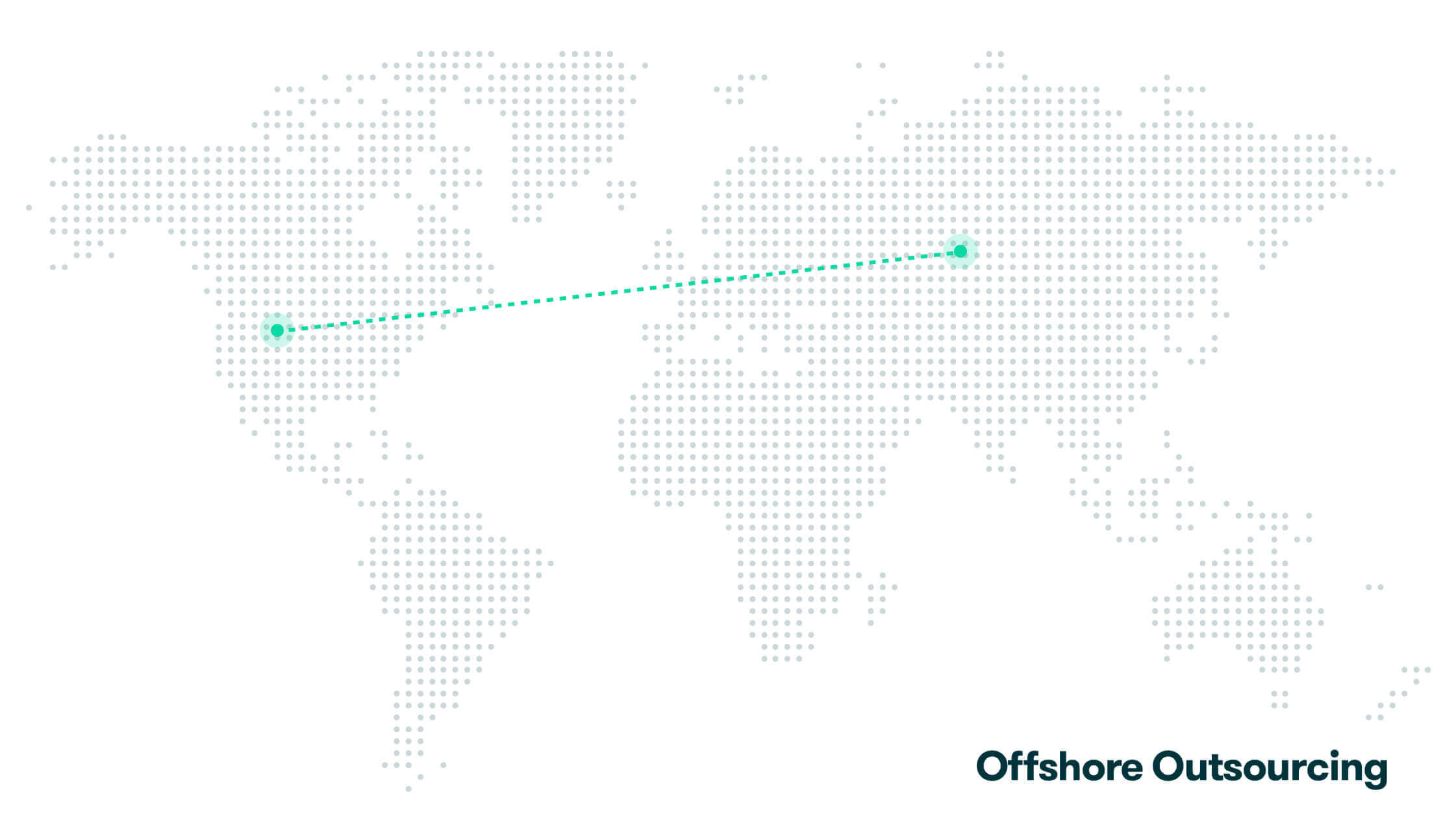What is Offshore App Development?
Offshore development, otherwise known as offshoring, is when a business elects to outsource the building of the code for their digital solution to an engineering team overseas.
Oftentimes companies choose to go with an offshore development team in order to keep costs low, or because they simply do not have the team in-house to build their code themselves.
In the early days of software development, many companies elected to work with offshore engineering teams. It was a means for businesses to maintain significant ROI, as they could receive a code for much cheaper than if they were to build it in-house, or if they were to work with a team within closer geographical proximity to them.
Nearshore development has become the preferred method of outsourcing.
Offshoring is becoming less and less popular, and nearshoring has become the preferred method of outsourcing engineering efforts.
Nearshoring refers to the practice of transferring a business operation to a nearby country, especially in preference to a more distant one.
Click here to learn more about nearshore app development and its benefits.
Let’s take a closer look at why offshore app development is becoming less popular.

5 Issues with Offshore App Development
As more and more people around the world are learning to code, the overall quality of offshore development teams has decreased. Today, it’s risky to elect to work with an offshore app developer, as it can lead to unforeseen costs as well as low-quality code.
Below are five pitfalls of working with an offshore app development agency.
1. An offshore partner will be located in a different time zone.
By their very nature, an offshore team will be located in a different time zone from you and the rest of your core business team.
While technologies like email and instant messaging can reduce the risk of being so far from the people building your solution, it’s almost a guarantee that at some point during your project you’ll want to be able to hold phone meetings, video conferences, and/or group chats in order to make sure things are on track.
This proves to be incredibly difficult when your offshore partner is asleep whenever you’re awake and online.
2. In-person meetings are much more difficult to schedule and execute with an offshore development partner.
If you plan on having a collaborative relationship with your outsourced partner, then offshoring is certainly the wrong move.
During offshore app development, holding in-person meetings such as Discovery sessions or sync-ups with your internal engineering team, or coming together to develop wireframes and prototypes will be nearly impossible. Efforts like these will require lots of coordination, as well as exhausting travel in order to seat yourself in a room with your engineering team.
3. You may encounter language and cultural barriers while working with an offshore partner.
There are particular cultural challenges that arise from working with an offshore development partner who resides on the other side of the world.
Does the offshore team have a work style and ethics that will allow you to remain productive? Are you able to provide critical feedback without it being interpreted as being offensive? Can you maintain confidence that the offshore team will feel confident and comfortable saying something like, “That requirement is out of our scope of work?”
If not, these are hurdles that can slow down your project significantly.
4. You’ll need to consider business regulations while working with an offshore development agency.
This is a big one. Different countries have different business practices and regulations that companies must abide by.
In other words, practices that are acceptable in foreign lands may, in fact, be illegal in the US or countries with stricter regulations in place.
5. Receiving low quality work is a risk that comes with working with vendors in unknown markets.
Overall, working with an offshore app development team leaves you at risk because it’s much more difficult to verify that members of an offshore team have received the same quality of technical training as members of a nearshore team.
It’s difficult to ensure the qualifications and professionalism of the people who will actually be building your code, as well as whether or not they will adhere to industry best practices.
Further, if you choose an offshore developer, it’s likely that they will not assign a dedicated project manager to oversee your initiative. This means that you could end up being the sole person responsible for making sure everything stays on track and within budget — which can be extremely difficult to manage from the other side of the world.
Final Thoughts
It’s impossible to claim that every instance in which a business outsources development to an offshore partner will end in tragedy.
However, it’s important to highlight that businesses who choose to work with offshore development teams put themselves at significant risk of not only spending more money in the long run due to inefficiencies, but that these businesses are more likely to end up with a lower quality product due to lack of the offshore team’s technical proficiency.
If you’ve been researching offshore development agencies, but you’re experiencing cold feet, consider a nearshore app development partner like Koombea.
We pride ourselves on taking a holistically consultative approach with each and every one of our clients. We work around our clients’ schedules, assign highly qualified and experienced developers to each project, and dedicate a single project manager to oversee everything at all time.
Want to learn more about Koombea? Contact us today to schedule a free 30 minute consultation during which we can discuss the state of your project and the best route forward!
